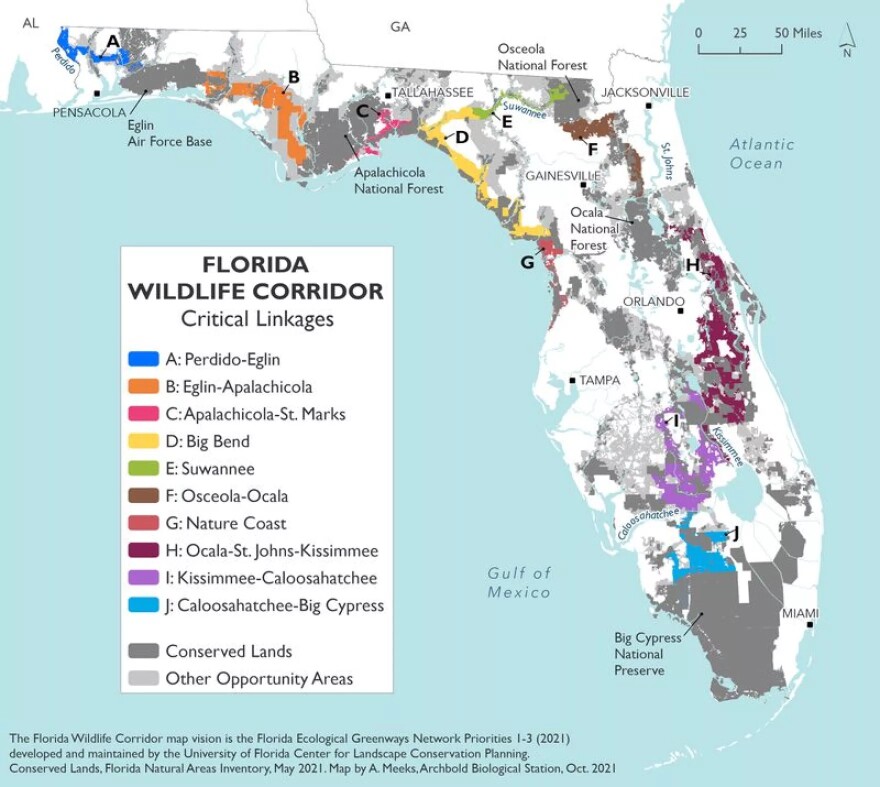Funding for Florida's main program to protect environmentally sensitive lands was slashed in the budget that now heads to Gov. Ron DeSantis.
Much of the money has been shifted to protect agricultural lands from development.
The new state budget sets aside $18 million for the Florida Forever preservation program. That's down from $229 million that was allocated in the 2024-25 budget. That was the highest appropriation for the program in 16 years, in a budget that was padded with federal dollars from the previous administration.
Mallory Lykes Dimmitt, CEO of the Florida Wildlife Corridor Foundation — which is working to create a statewide corridor for animals to migrate — says the budget is a bit of a setback.
"...it underscores the importance of continued advocacy for our partners across the state to make this case that land conservation is not optional. It's essential.” - Mallory Lykes Dimmitt.
“This year's budget really is a call to action to make the case alongside our partners, that all conservation programs — including Florida Forever, and also programs like Florida Communities Trust — have to be fully funded to secure this future for Floridians and visitors alike that we envision," Dimmitt said. "So it underscores the importance of continued advocacy for our partners across the state to make this case that land conservation is not optional. It's essential.”
But she noted a lot more money is being directed into a program that pays farmers and ranchers along the wildlife corridor not to develop their land.
ALSO READ: The group spearheading the Florida Wildlife Corridor gets a $1 million boost
About $250 million is going to the Rural and Family Lands Protection Program. That's up from $100 million in last year's budget. That included an additional $100 million to support the Florida Wildlife Corridor.
"A portion of that is recurring funding, which is really necessary, in our view, a critical step towards permanently protecting the Florida Wildlife Corridor," Dimmitt said. "And at the same time, we recognize that all conservation programs are critical to achieve the vision of this permanently protected corridor."
Late Monday, state lawmakers gave final approval to a state budget totaling $115.1 billion. That's $500 million less than what DeSantis had proposed, and 3.5 billion less than last year's budget.
Dimmitt said the state's environmental groups will rise to what she hopes will be a temporary challenge.
"I don't think the programs will just pause. I think it will be really a pivot this year. That it is a setback, but we're going to keep the momentum going," Dimmitt said. "It's an opportunity to bridge the other sources of funding, county and private funding.
"We're always working with different leaders each year, but towards the goal of protecting the most urgent priority areas within the corridor. So the work continues."






